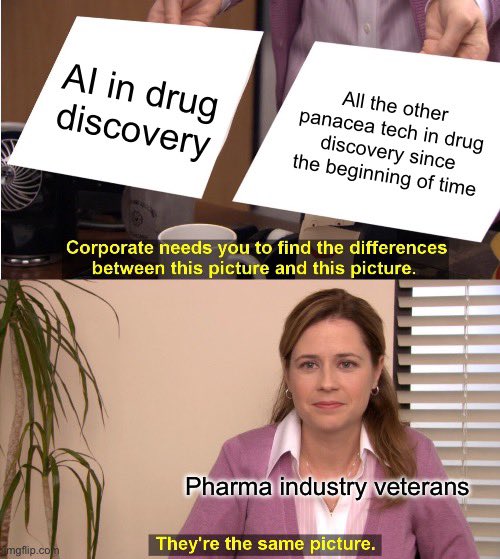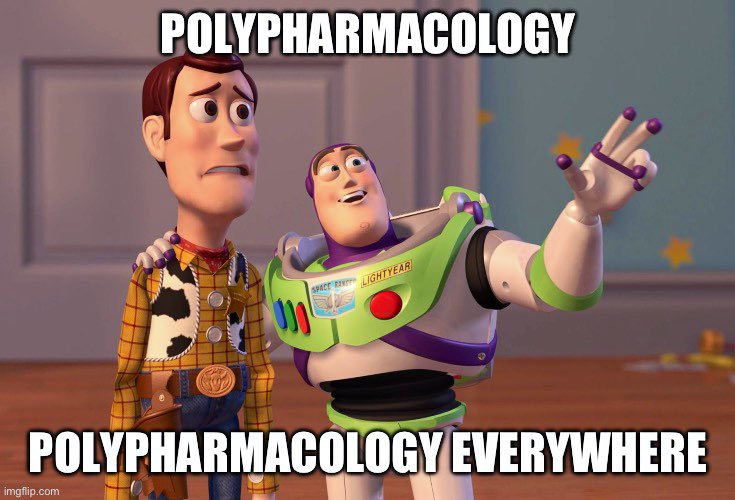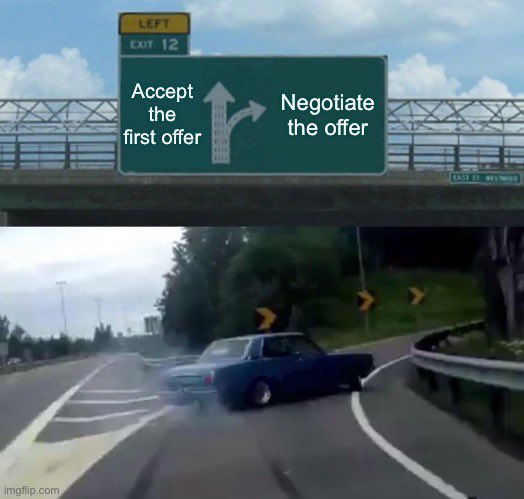Continuing the Friday pharma industry #EarlyCareer tip series. Last time we talked about phone interviews. This time let’s talk about the next step, a really big one: on-site interviews. 🧵 1/ 

If your phone interview goes well, the hiring manager will usually invite you for a site interview. Pre-pandemic, that almost always meant traveling to the pharma R&D site for the interview. These days, it may also be done virtually on Zoom or Teams instead. 2/
If you require accommodations for any reason, give the hiring manager or HR person a heads-up before the interview. Most companies are happy to work with you on this if they know. If they won’t, that’s a red flag. Consider then whether or not it’s worth going forward. 3/
If travel is involved, usually you won’t be thrown to the wolves to make your own travel arrangements. An administrative assistant will reach out to help you with transportation, hotel arrangements, etc. (If they don’t, that company’s culture is: you’re on your own!) 4/
Companies usually pick up the tab on travel costs up front, or offer reimbursement. They’ll also offer an allowance for incidentals, such as getting a snack at your hotel or an Uber ride. They don’t want financial barriers to discourage the candidate from interviewing. 5/
For a truly “on site” interview, you may be invited out to dinner the night before the interview. While it’s relaxed and social and a chance to meet more people, remember it’s still part of the interview! They’ll be assessing how easy you are to get along with as a teammate. 6/
Clarify at dinner how you’re arriving at the site the next day: drive yourself, Uber, or is your host picking you up? Turn in early and get a good night’s sleep, you’ll need it! Be on time in the morning. The rest of the thread applies whether you’re in person or virtual. 7/
A site interview is usually a full day for PhDs (maybe a half day for BS/MS folks), and you’ll be tired by the end. (Virtual might be broken up over >1 day though as scheduling allows.) Take bio breaks, coffee breaks, snack breaks — keep your energy up, it’s a long day! 8/
Attire: there are different schools of thought on this. Imo the best thing to do is to ask your hosts what their norms are. Some companies are casual, some formal, so don’t assume. In the absence of this info, lean formal. You can’t really overdress on an interview day. 9/
Incidentally, you’ll find throughout the day that there will be things like this that you groove on — or not. If you’re Hawaiian shirt casual and the company wants you in a suit, take stock of that. It tells you something about who they are, and how you might fit in — or not. 10/
Fairly early in the interview day (often first thing), you’ll be asked to give a seminar on your research. An hour is typical for PhDs, or 30-40 minutes for a BS/MS. Spend a lot of time preparing for your seminar — it’s the single most important part of your day! 11/
Aim for a PhD seminar to be ~50 minutes long, which means maybe 25 or so slides. Time yourself ahead of time and make sure you’re leaving 10 minutes for questions. If you leave no time for questions, or heaven forbid, run over, folks will be miffed. 12/
Most everyone at your seminar and that you meet with throughout the day has a busy schedule, and they have other meetings to attend or lab work to do. You’re in part showcasing your (in)ability to be succinct. If you run over, you’re disrespecting everyone’s time. 13/
Showcase portable skills in the seminar as you did during the phone interview, but in more depth. Talk about problems solved, obstacles overcome. The how matters more than the what. The exact work you did, cool, cool — but chances are you won’t be doing that in industry. 14/
The audience seeks a sense that you’ll come into the company’s environment and successfully tackle their problems — which are not the same as your grad school problems. They’re also evaluating your comms skills: quickly conveying key points, answering questions on point, etc. 15/
Both because it’s your biggest audience and your first impression on the interview day, the seminar is super-important. In my experience, if you tank the seminar, it’s very hard to recover — you’re fighting uphill. But if you ace the seminar, the job is yours to lose. 16/
The rest of the day will be “office interviews” with more people on the team, either individually or in small groups. These will range from peers to senior folks (your hiring manager and their peers, up to the department head or VP) to folks who might be your direct reports. 17/
You’ll get all manner of questions, because questions are as diverse as the people who ask them. Some folks will drill in deep on the technical details to see if you know your stuff. If e.g. you show a reaction in your seminar, you better be prepared to draw the mechanism! 18/
Other flavors of technical questions can be more speculative. I’ve been on interviews where people threw a molecule up on a whiteboard and asked me how I’d make it, or where I could vary substituents to explore SAR. They want to see how you’d tackle something new. 19/
One company I’ve interviewed at dedicated an interview slot wholly to someone sharing some of the company’s science with me. Again they’re seeing how you engage with new material, and if you can you ask thoughtful/insightful questions to improve your understanding. 20/
There will also be plenty of those targeted selection questions. See here for how to attack those. Think through multiple answers ahead of time. You may get asked the same question more than once by different people — they’re looking to see if your answer stays consistent. 21/
https://twitter.com/krhornberger/status/1621471661802373122
The “soft” questions are most likely to come up when you meet with someone from HR. HR should also give you a rough idea on salary, benefits, etc. Take advantage of this time to mention any personal concerns you may have, e.g. around relocation (if that’s required). 22/
As the company interviews you, you are also interviewing them. Most interviewers will save some time for you to ask them questions about the company, the location, the platform, etc. Be prepared, do your homework! A lack of inquisitiveness on your part comes off poorly. 23/
https://twitter.com/KRHornberger/status/1621471679292522496
As you meet with folks, do what I call the “asshole test”. If you meet someone (even one person!) and think, “Man, that person was an asshole!” — think seriously about whether or not you want to work there. Those kinds of fit things tend to magnify with time. 24/
If you gave a good seminar, you’ve built credibility & folks be more inclined to just confirm fit. If you blew the seminar, welp: blood in the water. It’s recoverable, but it’s tough. Good hosts will always remain kind though, even/especially when they know you’re struggling. /25
After the interview imo it’s good form to send some thank-you emails to the interviewers. A little politeness never hurt anyone. And if someone stumped you with a question in the pressure of the moment, it’s a chance to follow up with an answer and show you’re conscientious. 26/
Interview day is a big day. After this day, in pharma it’s usually a job offer or not. Some pharma companies will conduct follow-up/second round interviews, but that’s unusual in my experience, especially for entry level positions. So we’ll leave it there for now. /end
PS - here’s a link to the previous thread in this series about phone interviews, in case you missed it!
https://twitter.com/krhornberger/status/1621471584270557184
PS 2 - pro tip: have a big set of backup/appendix slides behind your seminar slides. Anticipate likely questions and answer them on slides to save yourself a trip to the whiteboard. Especially important on virtual interviews. That level of preparation leaves a good impression.
PS 3 - for next-level preparation, crack out SciFinder and learn the background of the people on your interview schedule. Read their papers, especially stuff they wrote at the company. If you can ask them intelligent questions about their work out of the blue: super impressive.
• • •
Missing some Tweet in this thread? You can try to
force a refresh









